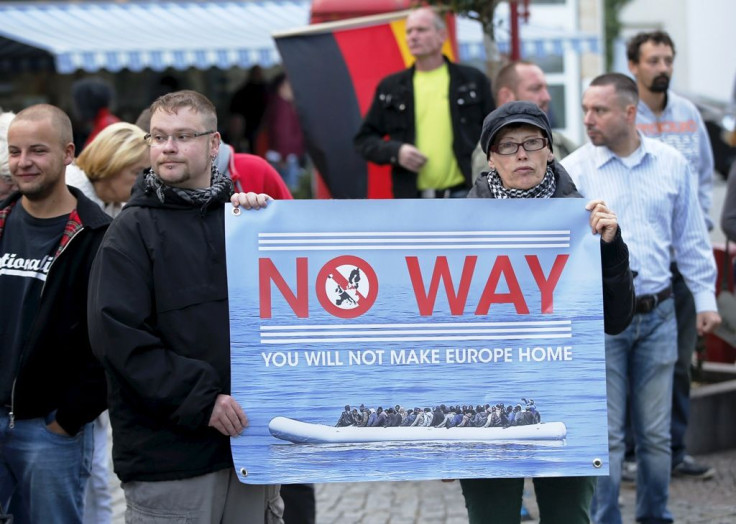Rape And Murder Of German Student Reignites Criticism Of Open-Door Policy

The arrest of an Afghan asylum seeker over the alleged rape and murder of a German student in October has reignited the refugee debate in Germany. However, the country’s government urged people on Monday not to politicize the matter.
A 17-year-old Afghan boy was arrested last Friday after his DNA matched that found near the crime scene, where a 19-year-old died in the southwestern city of Freiburg on Oct. 15. The suspect, who arrived in Germany in 2015, was identified on surveillance footage.
The anti-immigrant Alternative for Germany party (AfD) said the crime occurred because of the “uncontrolled” influx of foreigners, and the chief of a police union reportedly warned against the “dangers that always go along with massive immigration.”
However, Chancellor Angela Merkel’s government said that this was not the first time that such a crime has taken place in the country.
“If it turns out that it was an Afghan refugee, well then it’s absolutely condemnable, as any other murder would be,” Merkel told public broadcaster ARD.
Vice Chancellor Sigmar Gabriel stated that all refugees should not be blamed for the crime.
“Such horrible murders already happened before the first Afghan or Syrian refugee arrived here," Gabriel reportedly said. “We will not allow incitement after such violent crimes, no matter who commits them.”
The suspect’s arrest last week has triggered fresh criticism against Merkel’s open-door policy. Rainer Wendt, chairman of the German Police Workers Union, also blamed the crime on refugees and said it could have been stopped.
AfD co-chief Joerg Meuthen, said: “We are shocked by this crime and at the same time we see that our warnings about the uncontrolled arrival of hundreds of thousands of young men from Islamic-patriarchal cultures are written off as populist.”
On New Year’s Eve last year, a group of men — mostly Arab and African —sexually assaulted hundreds of women in Cologne. The incident triggered outrage across Germany, which has attracted a massive number of refugees over the last few years, bringing Merkel’s refugee policy under fire.
In 2015, about 890,000 refugee requests were made in Germany. However, the influx slowed down to 213,000 between January and September 2016, after a deal with Turkey and a series of border closures on the Balkan route.
© Copyright IBTimes 2024. All rights reserved.












